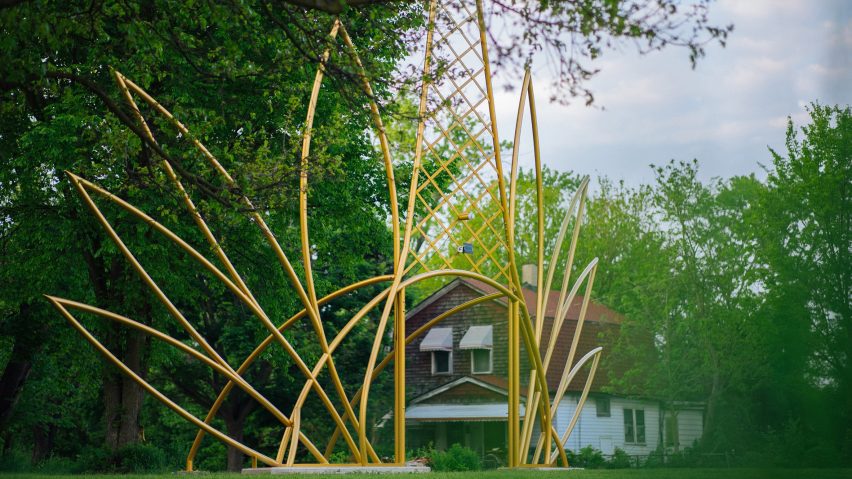
Jordan Weber creates installation that monitors Detroit's air quality
New York artist Jordan Weber has created a public "regenerative sculpture" in the shape of two crowns worn by African queens to monitor the air pollution of a Detroit neighbourhood as part of a project to combat the "effects of discriminatory urban planning".
Called New Forest, Ancient Thrones, the installation indicates the air quality through a sensor system and is meant to track the progress of the surrounding landscaping in mitigating air pollution.
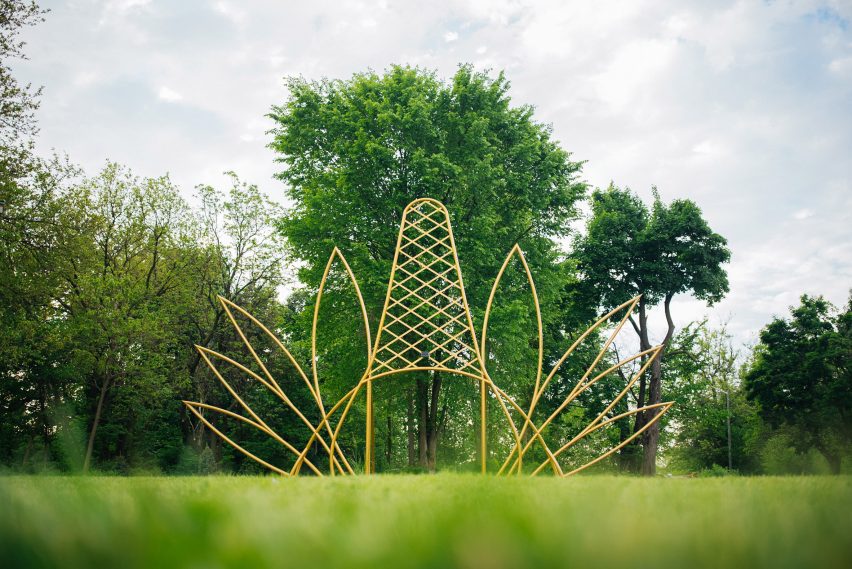
Supported by local organisations Sidewalk Detroit and Canfield Consortium, the sculpture is part of the ongoing Detroit Remediation Forest project by Weber, which includes multiple installations in the city's East Canfield Village neighbourhood.
According to Sidewalk Detroit, the "permanent, site-specific regenerative installation" is a gateway to East Canfield Pavilion Park. It consists of gold-painted aluminium rods shaped to resemble crowns worn by historical queens Ranavalona III of Madagascar and Idia of Benin, interwoven.
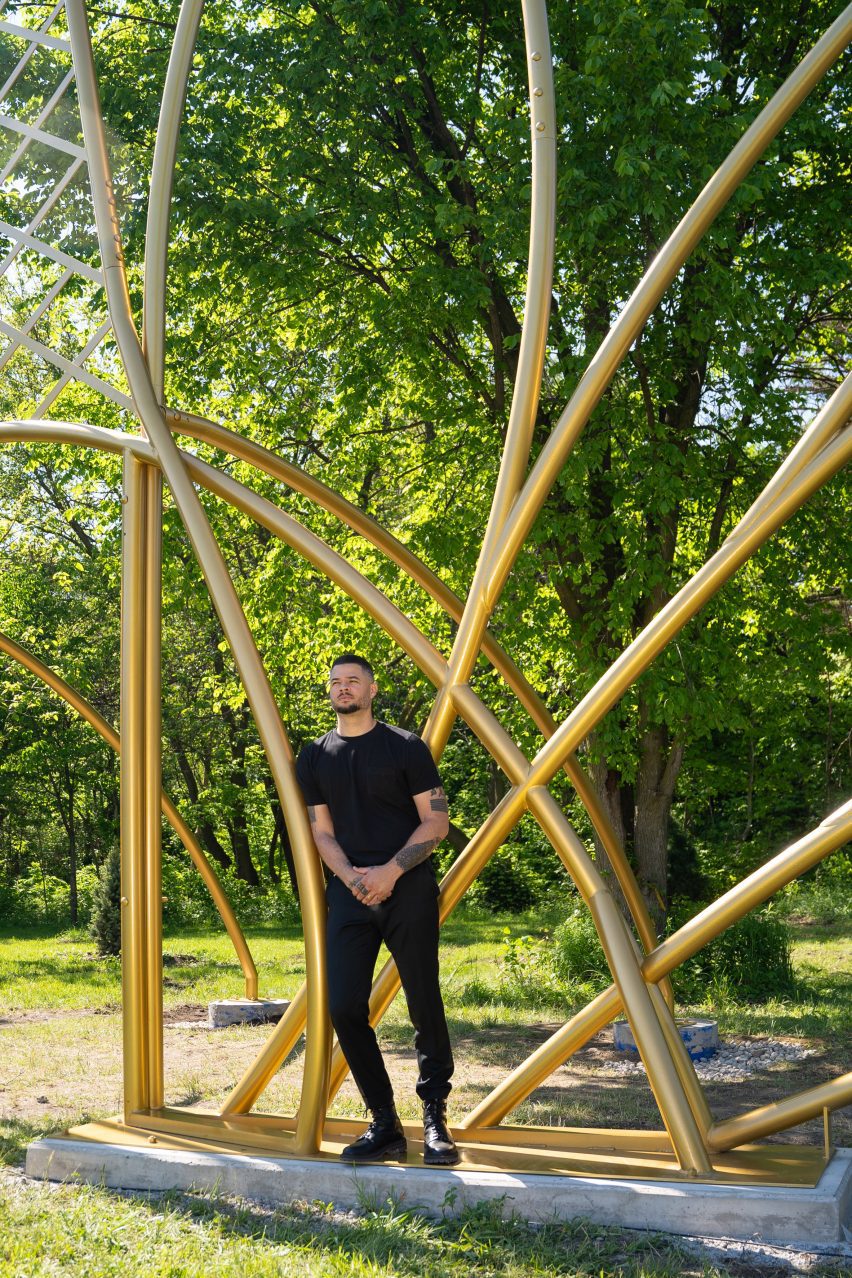
A monitoring system and LED lights affixed to the sculpture indicate the level of harmful air pollutants, or particulate matter (PM), surrounding the structure and can be analyzed by the public through the JustAir phone app.
The artist sought to mitigate and bring attention to the health effects of poor air quality and urban development on the local population, and show how areas inhabited by low-income people and people of colour are often more susceptible to these harmful environmental factors.
"When one controls the land, one controls the people,” said Jordan Weber.
"It is important that my projects help counteract the negative effects of discriminatory urban planning and supremacist constructs in the US through environmental apartheid, justice education and quantitative change."
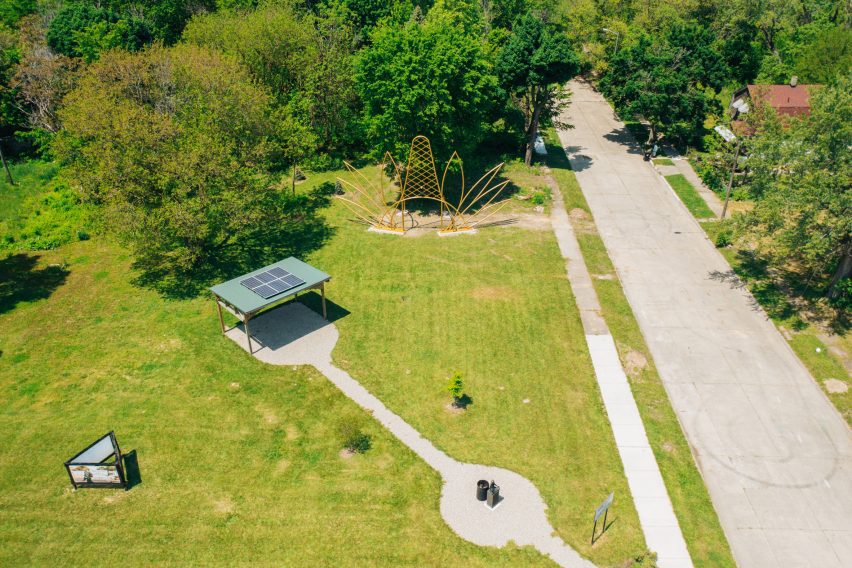
In particular, the expansion of the nearby automotive Stellantis-Mack Assembly Plant in 2019 resulted in "increased asthma rates and encouraged displacement" in the neighbourhood in light of the PM and volatile organic compounds (VOCs) released into the atmosphere, which violated air quality limits.
The sculpture's lighting system employs the US Environmental Protection Agency's green-to-maroon colour system to indicate the quality of air on a scale from good to hazardous, while the data can be tracked via cellphone.
"The air monitoring crown system with real-time, light-activated readouts allows us to map pollution data to cell phones measuring the effectiveness of capturing hazardous PM 2.5 from the Stellantis automotive plant looming over the Canfield community," said Weber.
The ongoing project will include planting pine and cypress trees to mitigate air pollution and eventually introduce an elevated walkway for 'forest bathing'.
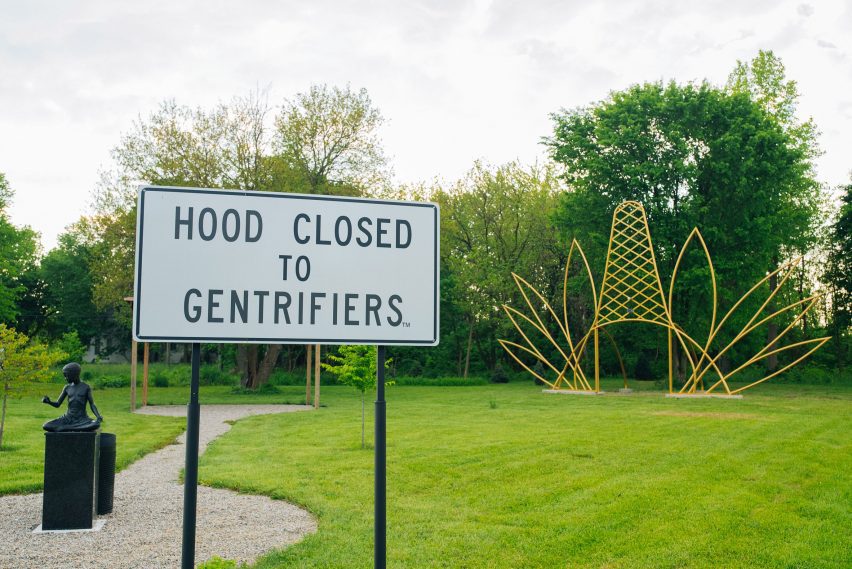
Phase two of the project is planned for 2025.
Detroit has seen a flurry of development in recent years, including a number of projects involving arts and corporate institutions that are restoring dilapidated buildings in and around the city core, such as the restoration of a historic train terminal for Ford and the conversion of an industrial bakery building into an arts centre.
Recently, the second tallest skyscraper in the city designed by SHoP Architects topped out in Downtown Detroit.
The photography is by Noah Elliott Morrison unless otherwise stated.